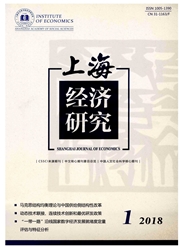

 中文摘要:
中文摘要:
本文运用FAVAR模型对我国2000年至2010年期间“房价之谜”——利率和住宅价格同向变动现象进行验证,探明原因发现:(1)适应性预期下的住宅投资利润率远超过利率成本,对推动住宅价格上涨起重要作用。(2)与一般工商业贷款比较,优惠的房贷利率使住宅投资具有“比较优势”,住宅投资存在“挤出效应”。(3)住宅价格上涨不仅是由“收入拉动”和“成本推动”,更具有强劲的“收入差距拉动”效果。扩大的收入差距聚集了购买能力,住宅投资需求被超前集中释放。
 英文摘要:
英文摘要:
In order to find the reason of China's "home price puzzle", this paper uses a Factor to homes asset price changes, but the positive feedback between the interest rate changes and the house price changes makes the interest policy useless to residential property price control. 2. Relaxed mortgage policies and abundant liquidity is the hotbed of housing bubble, interest try to remedy a defect behind but does not work. 3. The housing investment profit rate is far exceeding interest rate under adaptive expectations, it has a significant effect on residential property prices. 4. Large income gap better than average income and housing construction cost can affect the residential property prices. This means that income gap pulls China's residential property prices greatly. The income gap can assemble the purchasing power and stimulate housing investment and property speculation.
 同期刊论文项目
同期刊论文项目
 同项目期刊论文
同项目期刊论文
 期刊信息
期刊信息
